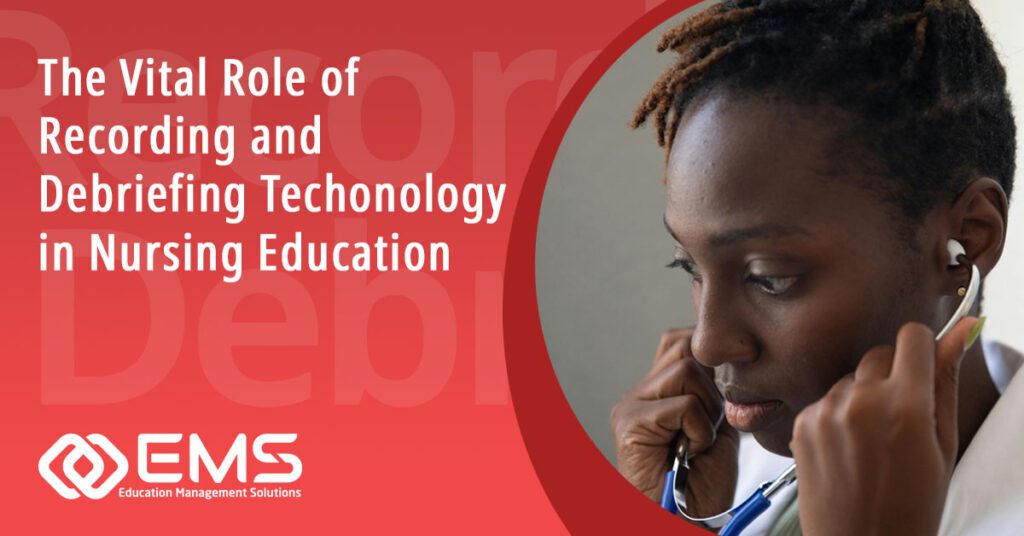The landscape of nursing education is witnessing a significant paradigm shift, moving towards more interactive and experiential learning methods. In the forefront of this transformation is the deeper and more meaningful integration of recording and debriefing technology into core curriculum, becoming more and more of a cornerstone in nursing simulation education.
The Importance of Simulation in Nursing Education
Simulation has become an indispensable part of nursing education, offering a safe and controlled environment for students to hone their clinical and decision-making skills. It’s in this context that recording and debriefing technology plays a pivotal role—capturing every decision, action, and interaction to help facilitate a deeper understanding of critical skills and produce better learning outcomes.
Key Advantages of Recording and Debriefing Technology in Simulation Training
- Fostering Reflective Learning
Reflection is at the heart of nursing education. The ability to watch and analyze one’s own performance during simulations enables students to internalize lessons learned, recognize strengths, and pinpoint areas for improvement. This self-reflective process is invaluable, nurturing critical thinking and enhancing overall clinical competence.
- Enabling Objective Assessment
Through the unbiased lens of recording technology, instructors gain a clear view of each student’s performance, free from subjectivity. This precise assessment is fundamental to providing targeted feedback and identifying specific goals for individual development, aiding in the student’s mastery of essential nursing skills.
- Promoting Evidence-Based Practice
By revisiting recorded simulations, students can directly observe the consequences of their clinical decisions and interventions. This immediate feedback loop reinforces the importance of evidence-based practice and critical thinking in real-life patient care scenarios.
- Supporting Peer Learning and Collaboration
One of the most significant benefits of this technology is its ability to facilitate peer-learning communities within the nursing curriculum. Sharing and discussing video recordings among peers encourages a collaborative learning environment, vital for developing teamwork and communication skills, one of the foundational elements of nursing.
- Preparing for Emotional and Stressful Situations
Nursing is not only about technical competence but also emotional intelligence and resilience. Recording and debriefing sessions provide insights into the emotional and psychological challenges encountered in clinical settings, preparing students to manage stress and empathize with patients effectively.
The Return on Investment
Incorporating recording and debriefing technology into nursing education goes beyond enhancing individual competencies—it elevates the overall quality of patient care. Institutions that invest in such technologies are not only equipping their students for immediate success but are also contributing to a more competent and confident nursing workforce.
EMS: A Partner in Nursing Education Excellence
At EMS, our mission extends to partnering with educational institutions to navigate the complexities of integrating simulation training and competency tracking technologies into their curriculum. Our simulation recording and debrief solutions are designed specifically to meet the unique needs of nursing education, ensuring a seamless fit that maximizes both learning outcomes and institutional resources.
Schedule a discussion with one of our solutions experts and discover how EMS can transform your nursing education program by providing the tools and support needed to thrive.

